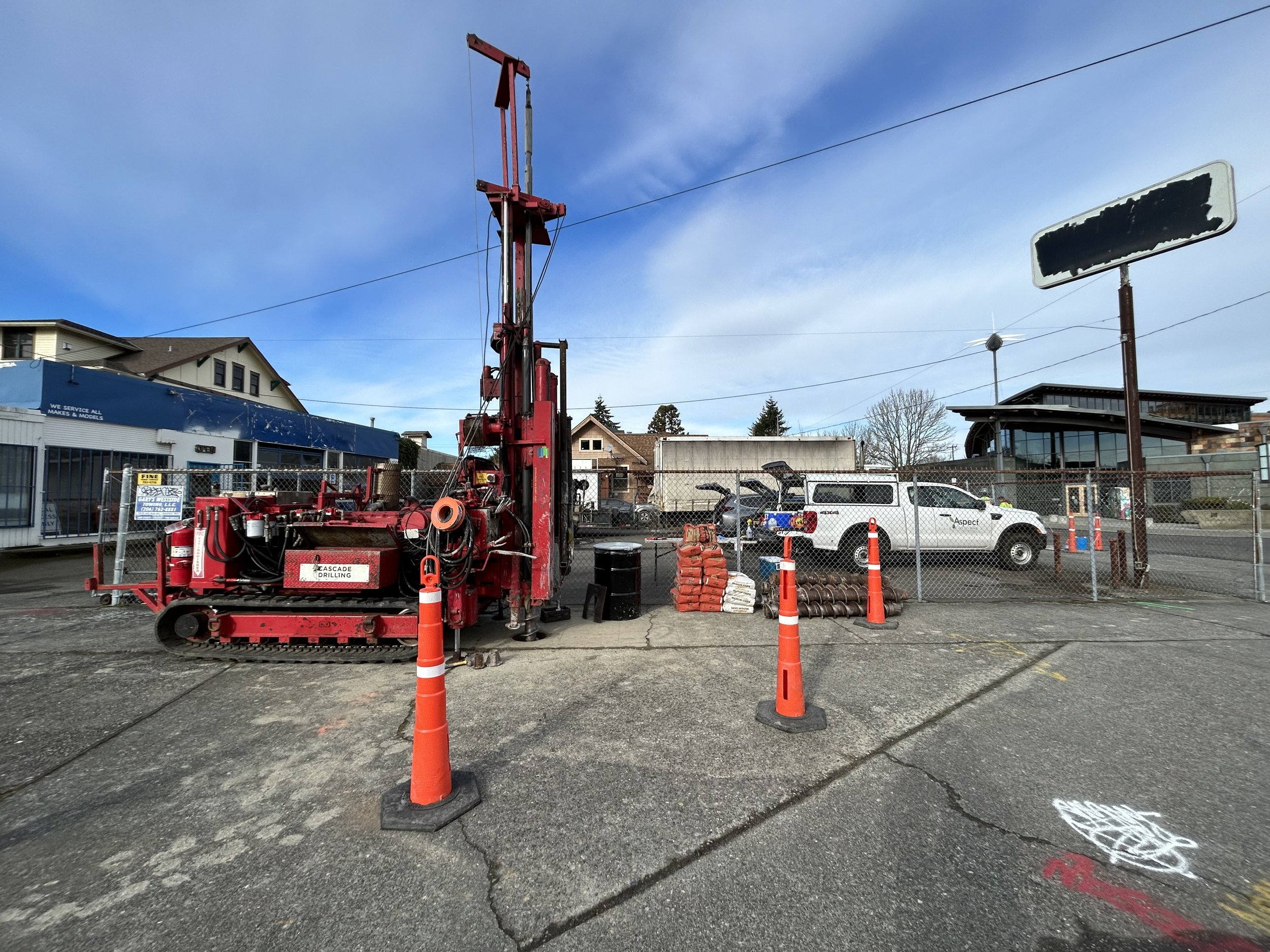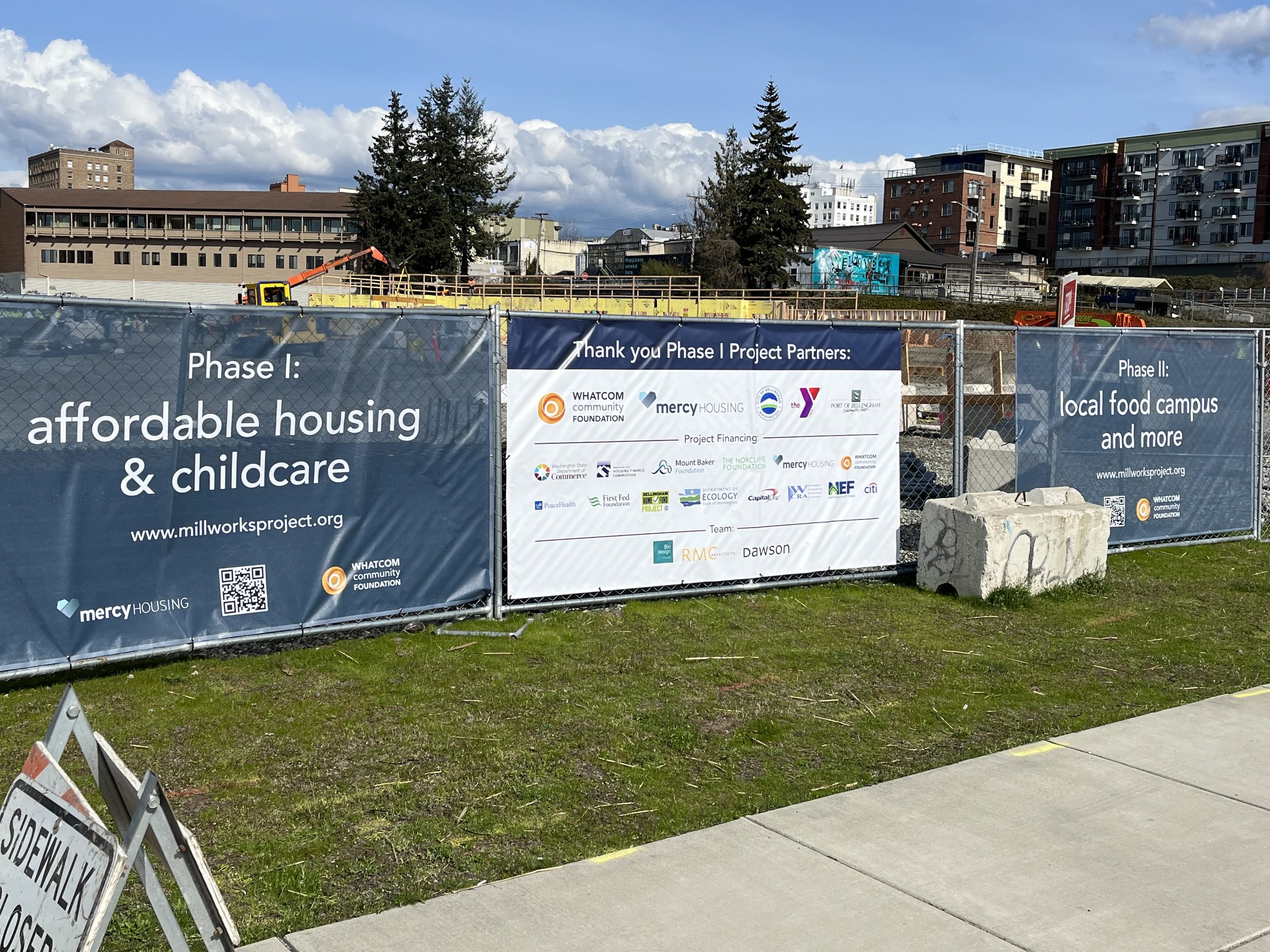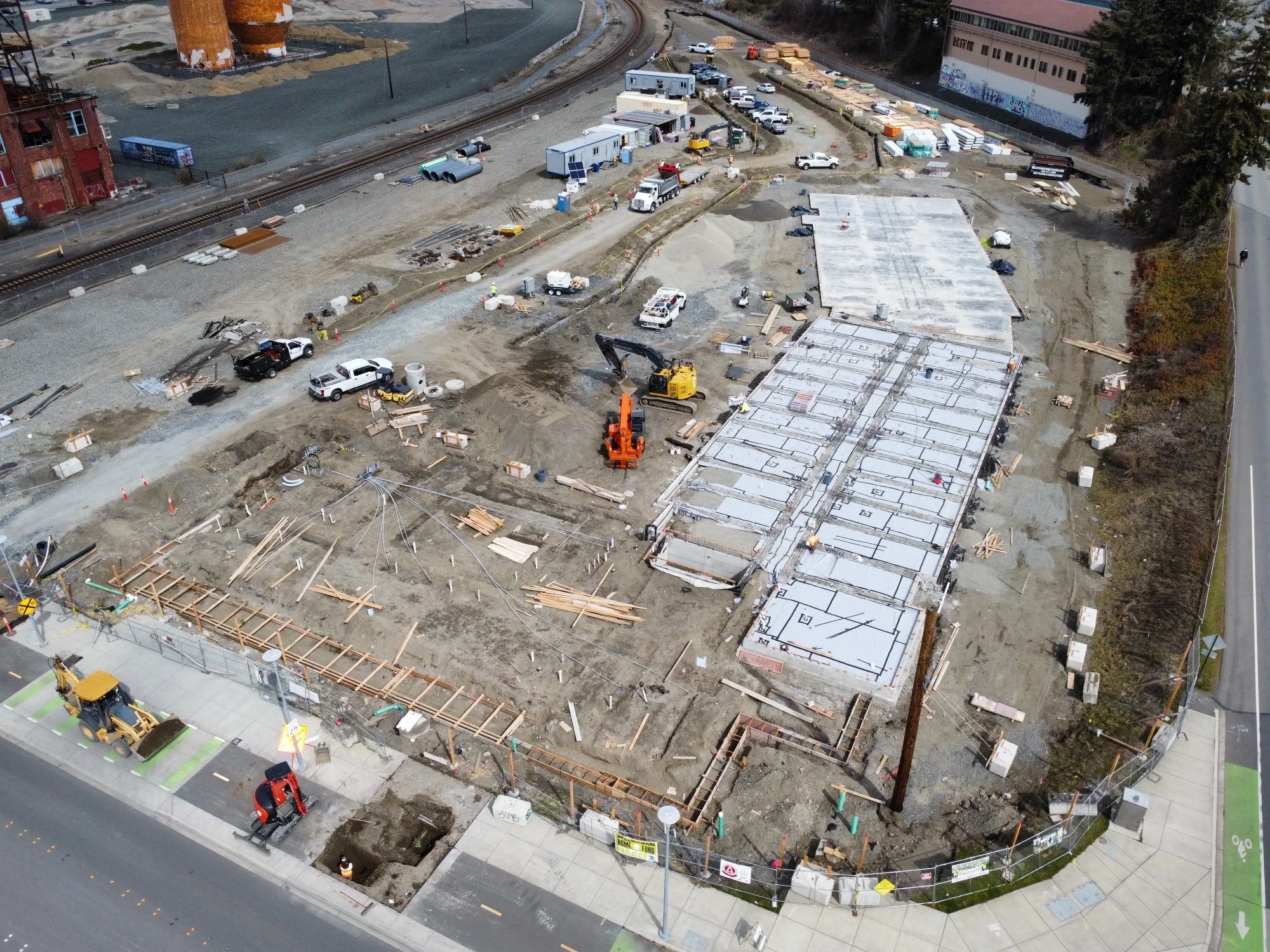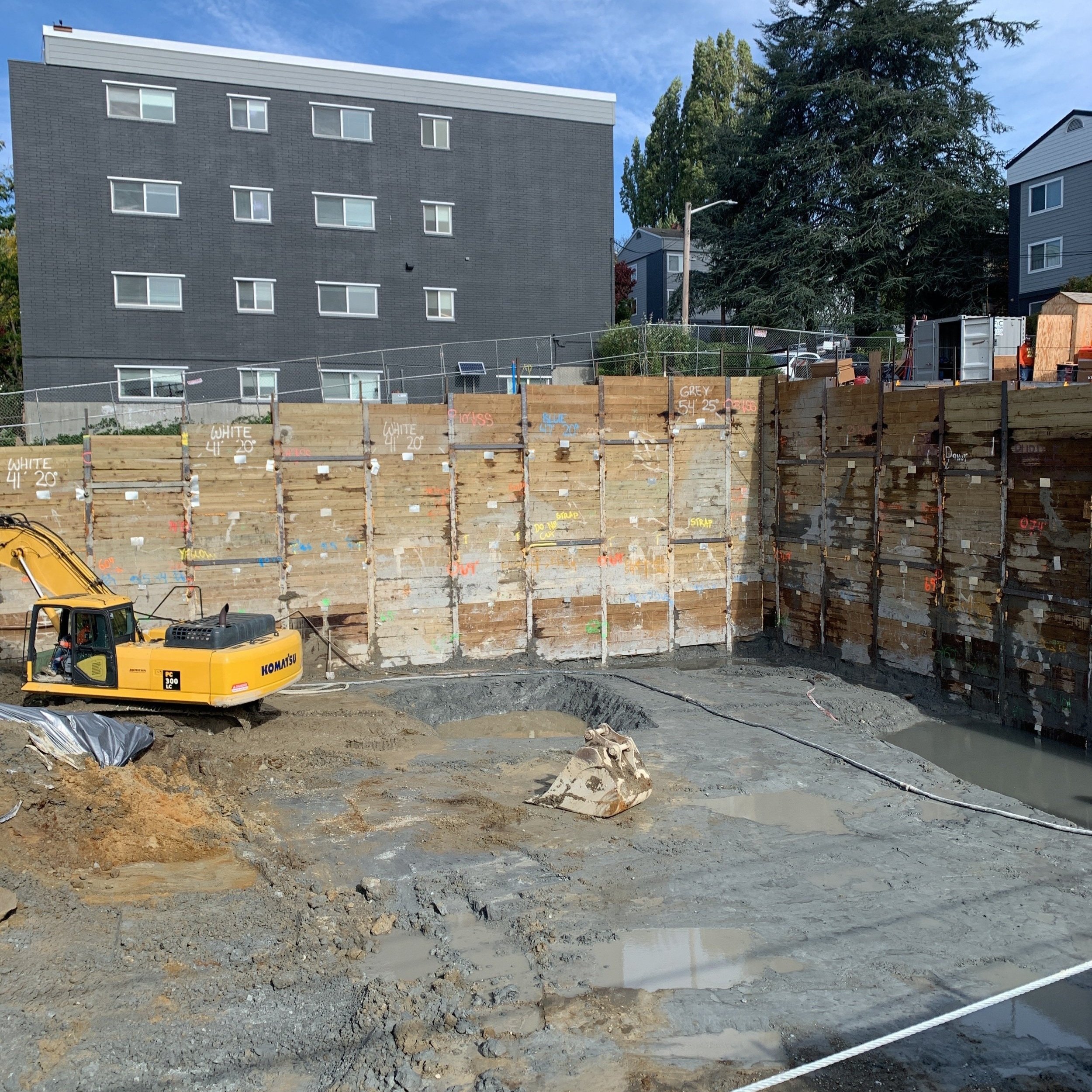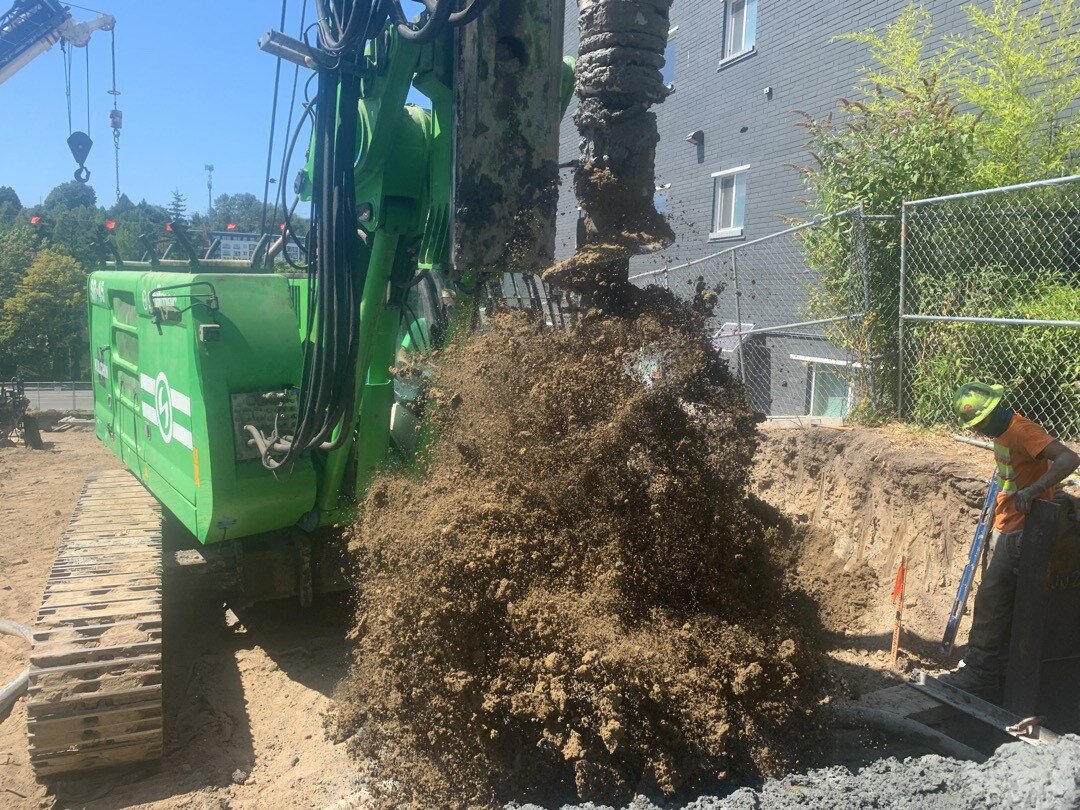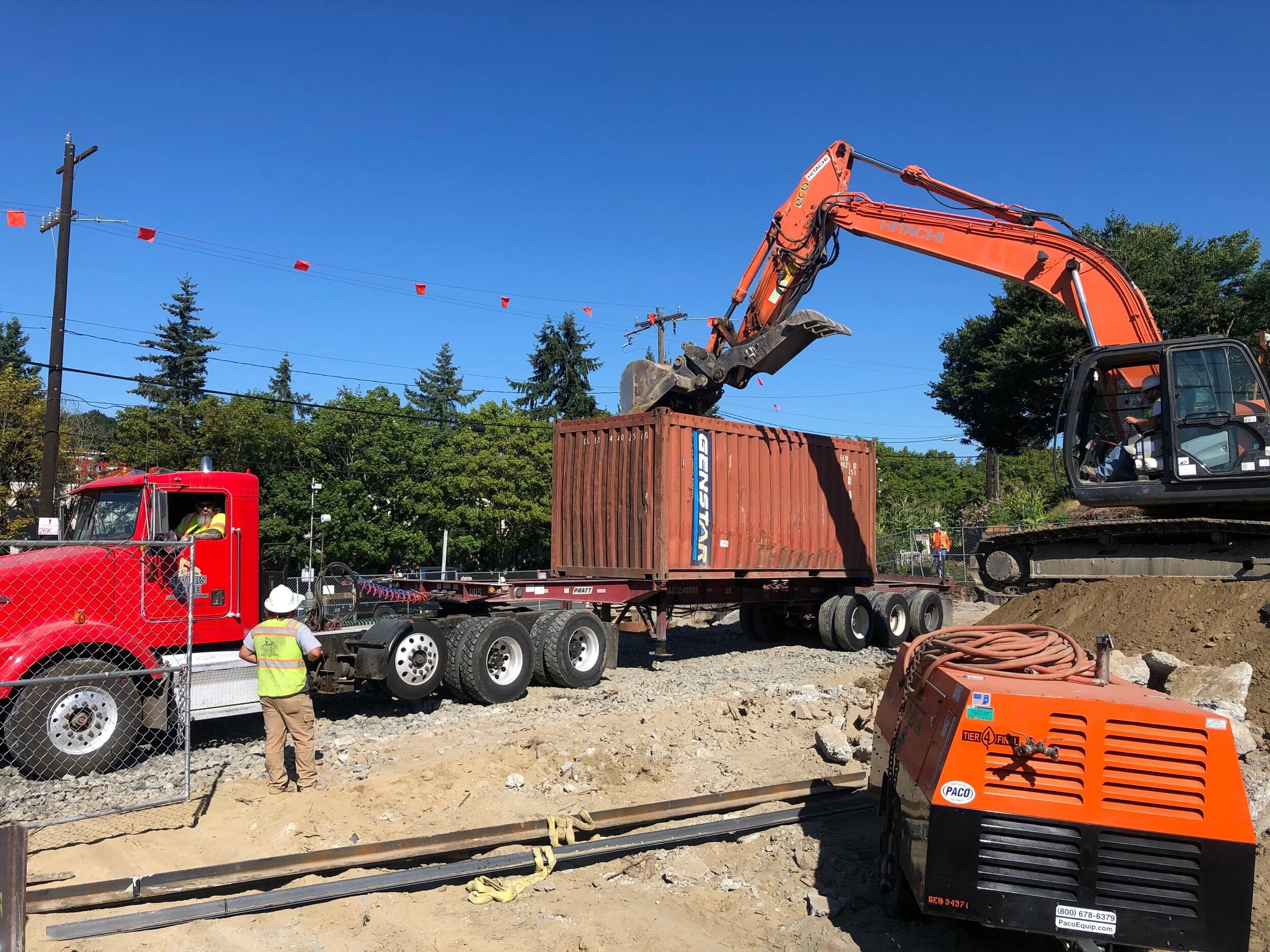Senior Principal Geologist Dave Cook, LG, CPG, will be a part of a seminar on Thursday, December 7 focused on the Model Toxics Control Act (MTCA). First adopted by the Washington State Department of Ecology (Ecology) in 1991, MTCA is now in its 33rd year regulating cleanup of contaminated sites in our state.
The site of the future Maddux North building being readied for redevelopment in 2020. The property formerly housed a dry cleaner, which left contamination in the surrounding soils. Cleanup of the site followed regulations per MTCA.
Dave and Ali Furmall, LHG, Brownfield Program Lead at Ecology, will present “Community Investment: Overview of Affordable Housing Cleanup Grant Program and Other Brownfield Program Resources.” Their talk will give an overview of Ecology’s Affordable Housing Cleanup Grant Program, which helps organizations purchase and remediate sites across Washington to build affordable housing.
Since the program’s start in 2016, Dave and Aspect have actively collaborated with Ecology, real estate developers, legal teams, and nonprofit housing groups to get projects funded and properties ready for cleanup. Our work now spans Bellingham, Ellensburg, and several sites in Seattle, including the launch pilot-project Mt. Baker Housing Association’s Maddux development. The project built two buildings with 203 total units on the site of a former dry cleaner and gas station/auto repair shop.
Maddux North, funded in part by the Affordable Housing Cleanup Grant program, welcomed residents in March 2023.
The day-long seminar hosted by Law Seminars International will spotlight other aspects of MTCA, including an overview of the recent updates—the first major updates in over 20 years—covering new decision-making criteria and other requirements that will impact future cleanup projects.
For the full seminar agenda and information how to register, visit the Law Seminars International website.


